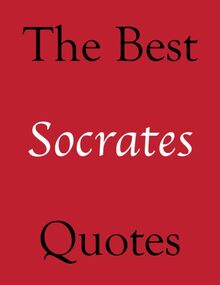-
 Univers
Univers
-
 Ebooks
Ebooks
-
 Livres audio
Livres audio
-
 Presse
Presse
-
 Podcasts
Podcasts
-
 BD
BD
-
 Documents
Documents
-
- Cours
- Révisions
- Ressources pédagogiques
- Sciences de l’éducation
- Manuels scolaires
- Langues
- Travaux de classe
- Annales de BEP
- Etudes supérieures
- Maternelle et primaire
- Fiches de lecture
- Orientation scolaire
- Méthodologie
- Corrigés de devoir
- Annales d’examens et concours
- Annales du bac
- Annales du brevet
- Rapports de stage
La lecture à portée de main
Vous pourrez modifier la taille du texte de cet ouvrage
Découvre YouScribe en t'inscrivant gratuitement
Je m'inscrisDécouvre YouScribe en t'inscrivant gratuitement
Je m'inscrisEn savoir plus
Vous pourrez modifier la taille du texte de cet ouvrage
En savoir plus

Description
Sujets
Informations
| Publié par | Crombie Jardine Publishing Limited |
| Date de parution | 17 avril 2014 |
| Nombre de lectures | 0 |
| EAN13 | 9781291838015 |
| Langue | English |
Informations légales : prix de location à la page 0,0180€. Cette information est donnée uniquement à titre indicatif conformément à la législation en vigueur.
Extrait
INTRODUCTION
Marcus Tullius Cicero (106-43 BC) is generally considered Rome’s greatest orator and the master of Latin prose. He was also a powerful statesman, a successful lawyer and an influential philosopher. Indeed, his affect on European literature and ideas, notably the Renaissance period, is almost unparalleled.
Cicero was born in Arpinum (south of Rome) to a wealthy and respected landowner. He was well educated in the teachings of the ancient Greek philosophers, poets and historians. He studied Roman law under Quintus Mucius Scaevola, one of the greatest authorities on Roman law at the time. Cicero began practising law c.83 BC, and his first major case (in 80 BC) was a highly controversial and dangerous one – the defence of Sextus Roscius on the charge of patricide.
In 79 BC, Cicero travelled to Greece, Rhodes, and Asia Minor. On these travels he met and studied with the rhetorician Apollonius Molon of Rhodes who was to influence Cicero’s oratory skills. Cicero also became fascinated by the teachings from Plato’s Academy in Athens.
In 75 BC, Cicero entered politics as quaestor in the western district of Sicily. In 70 BC, against all odds, he successfully prosecuted in a case against the island’s governor Gaius Verres. It was at this time that his speeches became well known and respected.
After some time, Cicero returned to Rome and won several court battles. In 63 BC, he was elected to consul – a powerful position in the Roman government. In this year, Cicero thwarted the conspiracy of Catiline – an attempt to overthrow the Roman Republic.
In 60 BC, Julius Caesar invited Cicero the be the fourth member of a powerful political union with Pompey and Marcus Licinius Crassus. Cicero declined (because he thought this First Triumvirate would undermine the Republic and he wanted to remain loyal to the Senate). He also spoke out against Julius Caesar which earned him an exile in Macedonia for some 16 months during which time he enriched his studies in philosophy.
On his return to Rome in 57 BC, Cicero continued to concentrate on his writing and philosophy. Between 55 BC and 44 BC he wrote ‘De republica’ (On the Republic), ‘De legibus’ (On the laws) and ‘De officils’ (On Duties, Cicero’s last theoretical work).
After Caesar was assassinated in 44 BC, people looked to Cicero for stability. He took control of the Senate and tried to get the Roman Republic re-established. Meanwhile, Mark Anthony was poised to take over from Caesar, and was out to take revenge on Caesar’s murderers. Although a witness to Caesar’s murder, Cicero had not been part of the conspiracy. Yet, in speaking out against Mark Anthony, Cicero was proscribed and assassinated (on the orders of Mark Antony) in 43 BC. Cicero is reported to have said to the soldier about to kill him, “[…] there is nothing proper about what you are doing, soldier, but do try to kill me properly.”
Luckily, as Cicero was declared a ‘righteous pagan’ by the early Catholic Church, many of his works have been preserved, including recorded speeches, books on rhetoric and philosophy. From these, comes this collection of the best Cicero quotes.
-
 Univers
Univers
-
 Ebooks
Ebooks
-
 Livres audio
Livres audio
-
 Presse
Presse
-
 Podcasts
Podcasts
-
 BD
BD
-
 Documents
Documents
-
Jeunesse
-
Littérature
-
Ressources professionnelles
-
Santé et bien-être
-
Savoirs
-
Education
-
Loisirs et hobbies
-
Art, musique et cinéma
-
Actualité et débat de société
-
Jeunesse
-
Littérature
-
Ressources professionnelles
-
Santé et bien-être
-
Savoirs
-
Education
-
Loisirs et hobbies
-
Art, musique et cinéma
-
Actualité et débat de société
-
Actualités
-
Lifestyle
-
Presse jeunesse
-
Presse professionnelle
-
Pratique
-
Presse sportive
-
Presse internationale
-
Culture & Médias
-
Action et Aventures
-
Science-fiction et Fantasy
-
Société
-
Jeunesse
-
Littérature
-
Ressources professionnelles
-
Santé et bien-être
-
Savoirs
-
Education
-
Loisirs et hobbies
-
Art, musique et cinéma
-
Actualité et débat de société
- Cours
- Révisions
- Ressources pédagogiques
- Sciences de l’éducation
- Manuels scolaires
- Langues
- Travaux de classe
- Annales de BEP
- Etudes supérieures
- Maternelle et primaire
- Fiches de lecture
- Orientation scolaire
- Méthodologie
- Corrigés de devoir
- Annales d’examens et concours
- Annales du bac
- Annales du brevet
- Rapports de stage



















